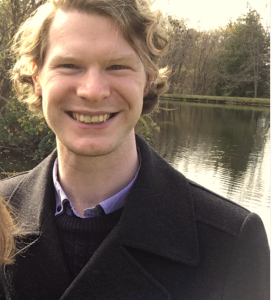Samuel Baudinette

My dissertation, “Assembling Divine Science: Philosophical and Christian Theology in the German Dominican School (1200-1361),” offers an intellectual history of the meaning of theology or divine science in its relationship to philosophy in the work of the medieval theologians Albert the Great, Ulrich of Strasburg, Dietrich of Freiberg, Meister Eckhart, and Berthold of Moosburg. Rather than simply catalog the specific arguments and ideas each Dominican appropriated from non-Christian and Christian literature, however, my research focuses instead on the disciplinary justifications they produced in their writing to vindicate such appropriations. In particular, I trace how the German Dominicans, who first described Christian theology as a more perfect kind of Peripatetic wisdom by employing Aristotle as well as Jewish and Arabic authorities, increasingly presented Christian theology as a Platonic, “supersapiential” discipline because of their recourse to the fifth-century Greek philosopher Proclus, whose metaphysics and related epistemological critique of Aristotle seemed to agree with their principle Christian authorities, Augustine and Pseudo-Dionysius the Areopagite. Ultimately, I hope to demonstrate in my work that Christian theology’s “becoming-Platonic” in the writing of the German Dominicans necessarily entailed Platonic theology’s “becoming-Christian,” insofar as they increasingly brought Greek Platonism and Christianity into alignment and sought to eliminate the differences between the two in view of their conceptual and practical similarities.
I am excited by the opportunities afforded by the Fellowship and the Martin Marty Center to engage in productive dialogue with those whose research interests and area of disciplinary expertise differ from my own. The Fellowship also places me back into the institutional life of the Divinity School itself and materially supports focused and sustained work on my dissertation as well as provides an academic community that holds me accountable as a writer committed to collaborative intellectual work. I also welcome the ongoing conversations among the participants about the relationship between our work as scholars and our responsibilities to the general public – particularly about what academic outreach to the broader community could and should look like at a time when the meaning of religion as an analytical category is highly contested within our professional guild but seems to be intuitively evident outside of it.

